Celebrating Culture and Advancing Care
In honor of Asian American Pacific Islander Heritage Month, physicians across NewYork-Presbyterian share how their cultural heritage is integral to their work.
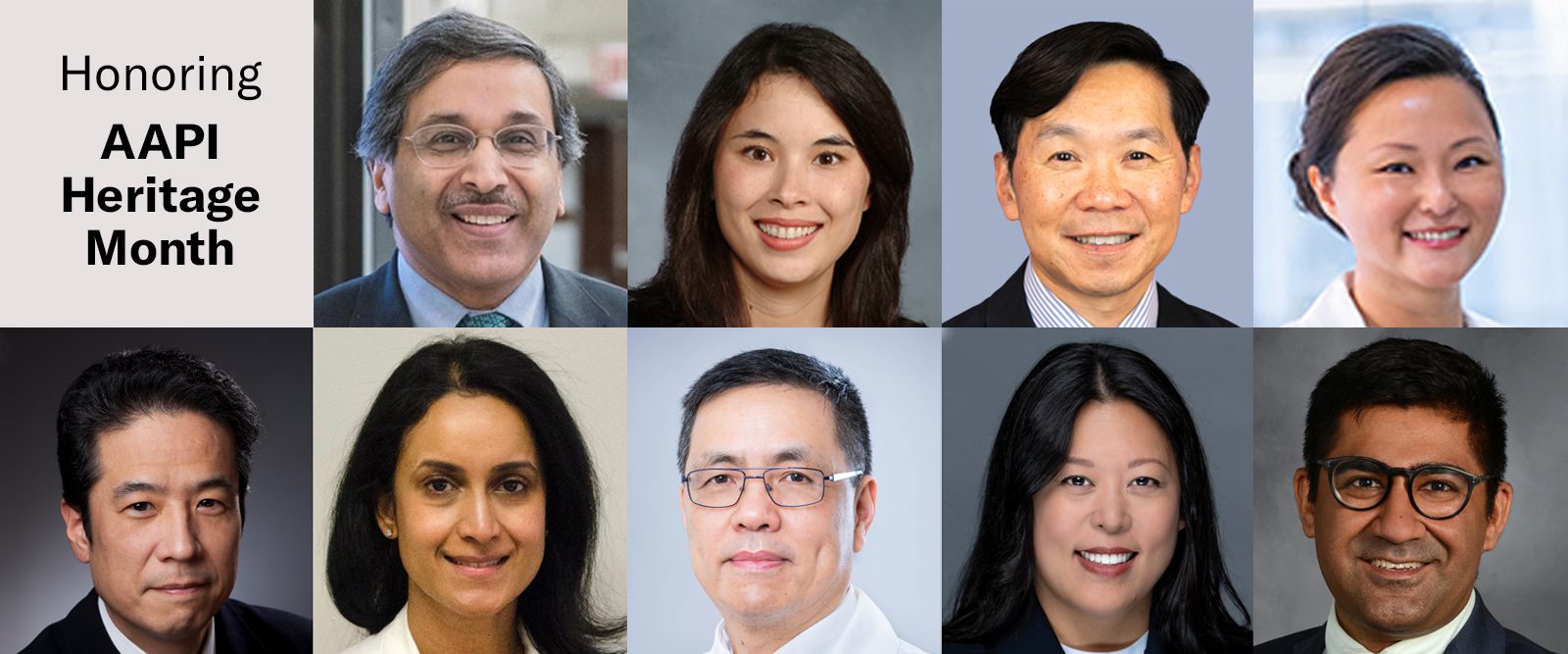
The theme of the 2024 Asian American and Pacific Islander Heritage Month is “advancing leaders through innovation.” At NewYork-Presbyterian, innovating science to help improve outcomes is central to the work that our care teams do. Here, nine physicians and leaders in innovation share how culture and community drives their purpose and commitment to patient care.
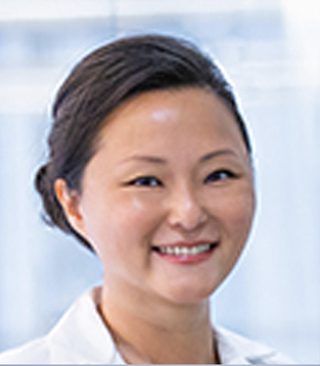
Dr. Ja Hyun Shin
“My experience coming from an immigrant Asian family — with the struggles and accomplishments — are deeply etched into my identity and shaped my personal and professional values. They also are the basis of how I define community with those who have shared in these experiences, Asian or not.
Appreciating how our different backgrounds can profoundly impact the decisions we make for ourselves and our families are necessary to compassionate care and working effectively within a team.”
– Dr. Ja Hyun Shin
Director of Minimally Invasive Gynecologic Surgery
NewYork-Presbyterian/Weill Cornell Medical Center
Dr. Shin, an expert in advanced laparoscopic and robotic surgeries, leads the Fibroid and Adenomyosis Center and the Endometriosis and Pelvic Pain Program at NewYork-Presbyterian/Weill Cornell Medical Center. She and her team utilize the newest technologies and pursue innovative approaches to treat complex gynecologic conditions, reduce surgical complications and improve patient outcome and satisfaction.
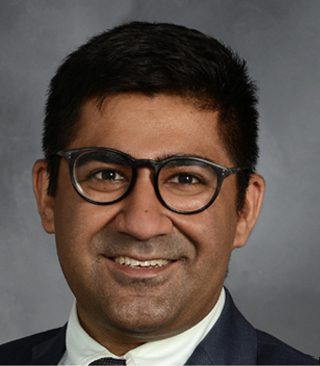
Dr. Rohan Jotwani
“Treating patients who live in chronic pain can be humbling. While pain is something almost universally experienced, its representation is often deeply rooted in our diverse cultural and ethnic expression.
Developing innovative solutions for pain management necessitates having perspectives from different backgrounds so we can better understand our patients’ stories and work towards meaningful solutions that make sense in the context of their lives. We need more diverse voices helping and leading us to build novel and innovative AI tools.”
– Dr. Rohan Jotwani
Anesthesiologist and pain management specialist
Och Spine at NewYork-Presbyterian/Weill Cornell Medical Center
Dr. Jotwani — whose parents are of South Asian descent and was raised in Seoul, South Korea before moving to Queens, New York — considers himself a product of globalism and is inspired to improve outcomes in pain medicine by bringing together multidisciplinary teams. He serves as Co-Director of the Extended Reality Anesthesiology Immersion Lab (XRAIL) at Weill Cornell Medicine and uses extended reality to create 3D hologram anatomical models of patients’ anatomy to find where their pain signals may be stemming from. Most recently, he also serves as editor-in-chief of the Journal of Medical Extended Reality.
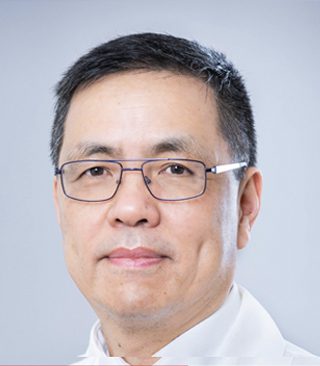
Dr. Bo Shen
“The United States is a country of immigrants. Our patients and their families, along with health care professionals, bring vibrant cultures to this great, colorful nation.
Still, there is culture shock and language barriers in patient care. People from different ethnic and cultural backgrounds can learn from each other and work together, with the enhancement of diversity in health care delivery helping to minimize these barriers.”
– Dr. Bo Shen
Medical Director of the Inflammatory Bowel Disease Center
NewYork-Presbyterian/Columbia University Irving Medical Center
Dr. Bo Shen leads an expert team focused on advancing the field of interventional inflammatory bowel disease (IBD) and ileal pouch disorders. He established the first pouchitis clinic and interventional IBD unit in the United States and founded groups to further the adoption of specific treatment techniques across the world.
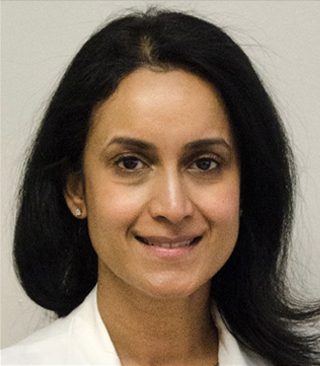
Dr. Kumudha Ramasubbu
“I’m originally from India and grew up in Europe. Being an immigrant from a diverse background has helped me recognize and address cultural barriers in health care, and relate and connect with others, which in turn helps build trust and rapport.
It is very important to have diversity in gender and ethnic representation among providers. It helps improve connections to a diverse patient population and reduce unconscious bias.”
– Dr. Kumudha Ramasubbu
Director of Heart Failure
NewYork-Presbyterian Brooklyn Methodist Hospital
As a heart failure specialist, Dr. Ramasubbu oversees a team focused on improving outcomes and quality of life for patients in Brooklyn and beyond. Through her research on topics such as the impact of COVID-19 and cardiac health, novel therapies for heart failure, and cardiac transplantation, she collaborates closely with her colleagues at NewYork-Presbyterian/Weill Cornell Medical Center to provide access to specialized advanced therapies for patients.
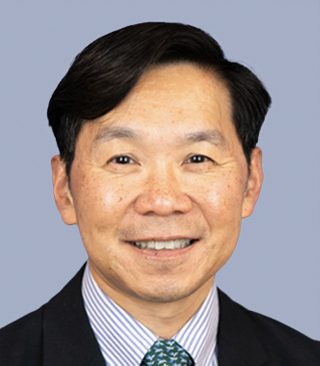
Dr. Warren Y.K. Ng
“My vision is shaped by the rich experiences of my culture and heritage. The strong Asian cultural values of respect, reciprocity, family, filial piety, and compassion help me become a better doctor. As an Asian-American immigrant, I’ve been able to reflect on my own experiences to deepen my empathy and awareness of others. Diversity is our strength and because of that, we have more to share and teach one another.
Innovation also means that we never stop learning, and I learn as much from the people I serve as well as the evidence-based science that informs my work.”
– Dr. Warren Y.K. Ng
Medical Director of Outpatient Behavioral Health, Community Health Director, The Center for Youth Mental Health, Behavioral Health Clinical Innovation Officer
NewYork-Presbyterian/Columbia University Irving Medical Center
Dr. Ng, who was born in Hong Kong, dreamed of helping others as a physician. His experience as an Asian American helped him see the mental health stigma and bias within minority communities, and he went on to train to become a psychiatrist to provide care to those in need. Along with his leadership at NewYork-Presbyterian, he has served as past president of the American Academy of Child and Adolescent (AACAP) and on the NYS Governor’s Behavioral Health Services Advisory Council.
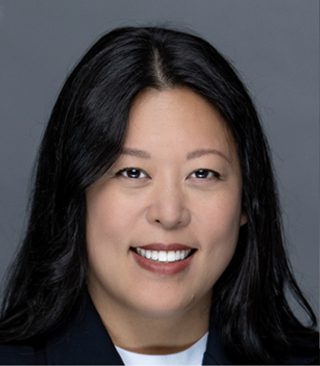
Dr. Soojin Park
“In post-war South Korea, two of my grandparents had severe effects of stroke at a young age, due to lack of treatments which were not available until I was in college. I’ve always been drawn to giving people the best, first chance to have a good outcome despite dramatic neurologic injury.
When patients from racial and ethnic minority groups see a face that reflects their own, speaks their native language, or understands their customs, it can take the edge off a stressful situation.”
– Dr. Soojin Park
Medical Director of Critical Care Data Science and Artificial Intelligence
NewYork-Presbyterian/Columbia University Irving Medical Center
After years of working in the neurocritical ICU, Dr. Park used her background in data science to develop a tool that can better predict and detect which specific patients are at risk for secondary brain injury. With the Continuous Monitoring Tool for Delayed Cerebral Ischemia (or COSMIC) score, which uses machine learning and basic patient data that can be collected with equipment available at any hospital, doctors can intervene in time to treat neurocritical patients with targeted care, and ultimately improve outcomes.
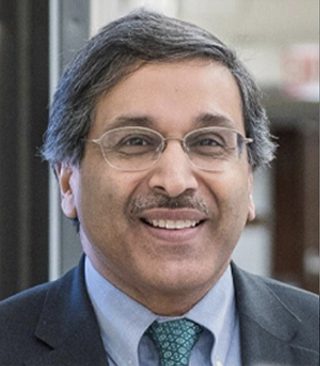
Dr. Anil K. Rustgi
“Respect for diversity, at many levels, leads to better patient care. Patients feel secure knowing their backgrounds are recognized and integrated into clinical decision-making and implementation.
Diversity leads to access to the latest clinical developments. Innovation through research, education, and community advocacy fuel discoveries, clinical trials, and comprehensive patient care.”
– Dr. Anil K. Rustgi
Director of the Herbert Irving Comprehensive Cancer Center
NewYork-Presbyterian/Columbia University Irving Medical Center
Through his work and ongoing research in oncology, physician-scientist Dr. Rustgi and his team are advancing early detection for the disease with screening programs, genetic testing, and counseling to help more patients and increase survival. As an expert in gastrointestinal cancer, his research focuses on molecular genetics and factors that lead to cancers including those of the esophagus, pancreas, and colon.
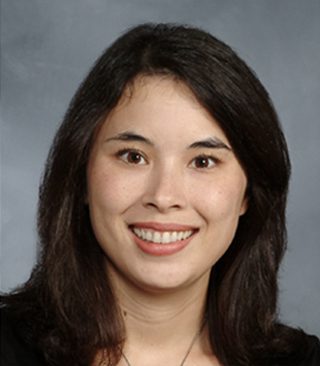
Dr. Jennie Ono
“Growing up in a mixed family with the combination of Eastern and Western approaches to health — which sometimes complemented each other and other times were in direct opposition — influenced my approach to medicine and taking care of children and families.
It allowed me to understand the importance of varied needs, perspectives and beliefs when making clinical recommendations, and how to partner with families to understand what treatment approach may be right for them.”
– Dr. Jennie Ono
Chief of Pediatrics
NewYork-Presbyterian Queens
As a leading pediatrician who focuses on inpatient care and pediatric asthma, Dr. Ono works to increase access to comprehensive pediatric care for patients and their families in Queens. Through her ongoing clinical, quality and research work in asthma with the Pediatric Asthma Program at Weill Cornell Medicine and NewYork-Presbyterian Queens, she is committed to improving health equity for her patients and their communities.
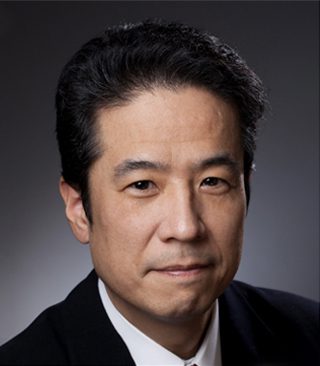
Dr. Tomoaki Kato
“Diversity is the mother of innovation. People from different backgrounds bring different perspectives to the team, and a culture of inclusion is extremely important in patient-centered care.”
– Dr. Tomoaki Kato
Chief of Transplant Surgery
NewYork-Presbyterian/Columbia University Irving Medical Center
Dr. Kato, a world-renowned multi-organ transplant surgeon, is known for finding innovative ways to treat patients and expand the boundaries for transplantation. He was the first in the world to perform a six-organ ex-vivo surgery in which he removed six organs from a pediatric patient, removed a large tumor, then re-implanted the organs. He also helped pioneer auxiliary partial orthotopic liver transplantation (APOLT), which treats a failing liver by attaching a partial donor liver onto it, and helped develop a pediatric liver transplant program in Latin America.
